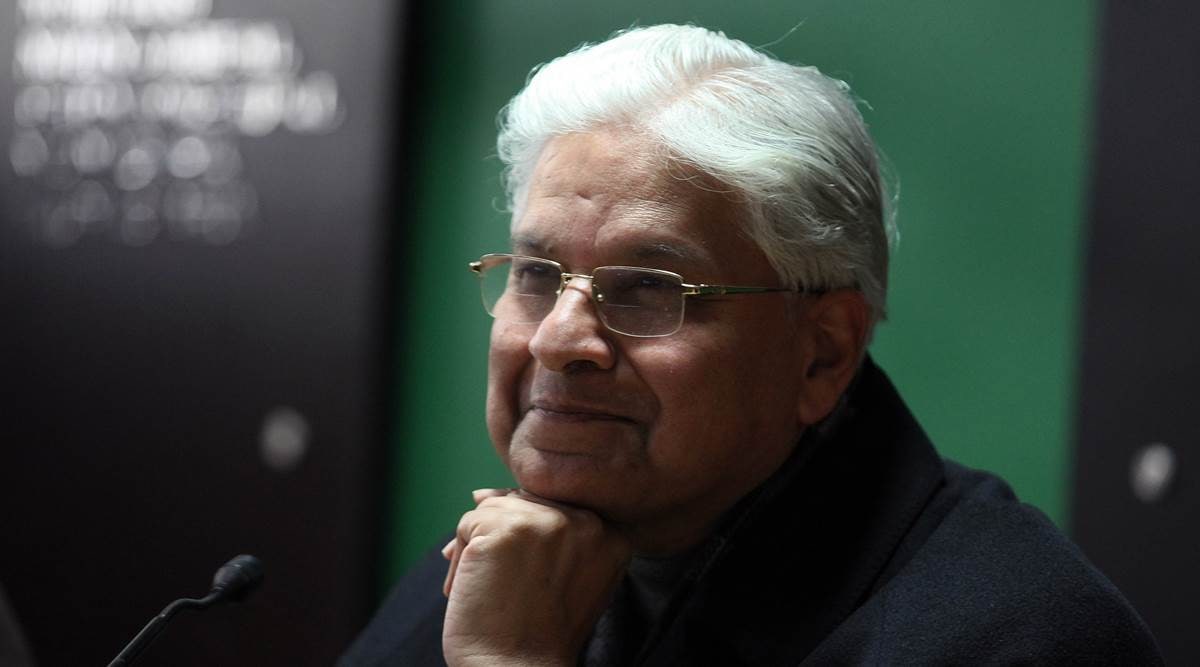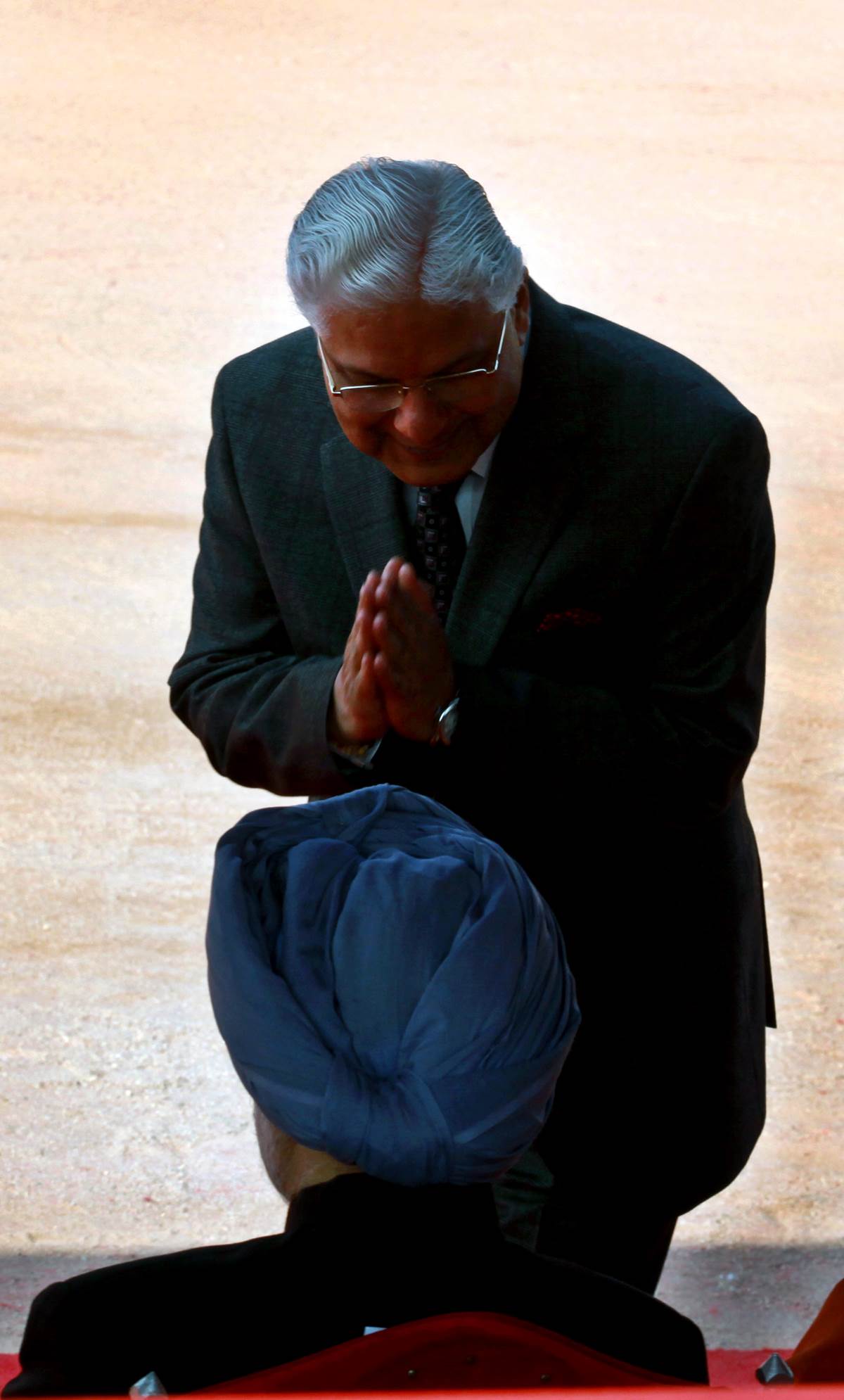 Ashwani Kumar quit the Congress party on Tuesday. File/Express Photo by Kamleshwar Singh
Ashwani Kumar quit the Congress party on Tuesday. File/Express Photo by Kamleshwar Singh Just days before Punjab goes to polls, senior Congress leader from the state and former Union cabinet minister Ashwani Kumar today resigned from the party.
Kumar, a veteran Congressman, is the first senior UPA cabinet minister to leave the Congress post its debilitating Lok Sabha election defeat in 2019.
The Congress has seen a string of exits by leaders, including its youth faces – among them the likes of Jyotiraditya Scindia, Jitin Prasada, R P N Singh. , Sushmita Dev, Priyanka Chaturvedi and Laliteshpati Tripathi – in the last two years. But Kumar’s exit signals that even the old guard is increasingly getting disenchanted with the state of affairs in the party.
Two other veterans — former Goa Chief Minister Luizinho Faleiro and former Punjab Chief Minister Amarinder Singh — recently parted ways with the party.
Kumar’s exit was also unexpected as he was a staunch loyalist of Congress president Sonia Gandhi and had been associated with the party for over four decades. He had defended Gandhi strongly when 23 senior leaders, now popularly known as G 23, wrote to her in August 2020 calling for sweeping changes in the party.
He had then said that the issues that required to be addressed can be addressed only under the leadership of Gandhi. “Only a year ago (in 2019), party persons literally begged her to lead the party and she agreed as a call of duty. It is wrong to question her unifying leadership at this stage. I am of the view that under the present extraordinary circumstances, political adventurism cannot be the way forward,” Kumar had said then.
 Ashwani Kumar, greeting then Prime Minister Manmohan Singh in New Delhi, December 2013. File/Express Photo by Renuka Puri
Ashwani Kumar, greeting then Prime Minister Manmohan Singh in New Delhi, December 2013. File/Express Photo by Renuka Puri The Congress, he had said then, will function best on the basis of broad political consensus “hammered through meaningful and wide consultations amongst the leadership.” Sonia Gandhi’s “judgement in the accommodation of competing claims to recognition has generally served the party well,” he had said.
Today, he said the decision to leave the Congress was “painful” but argued that the party has ceased to be the “mouthpiece” of “national aspirations” and does not promise a “transformative leadership” to the nation.
He said the stamp of Sonia Gandhi’s judgment is not prominent now and argued what the Congress needs desperately is to “bring into existence a truly collective leadership structure in which seniority and merit would be given due respect and the elders are not denuded of their dignity.”
Talking to The Indian Express soon after he sent his resignation letter to Gandhi, Kumar said the “internal processes of the Congress diminished individual leaders which collectively debilitates the party” and argued that “hope for correctives (in the party) stands belied.”
“The continuous decline of the Congress in terms of vote percentage, in terms of popular support clearly shows that the party is out of sync with the way the nation thinks. It is the function of a political party to both gauge the national mood and where necessary to transform it. Can anybody seriously or honestly deny that this has not been the case with the Congress party?” he said.
Without taking the name of Rahul Gandhi, he said the “national mood is not in favour of the alternative that the Congress party presents to the people in terms of its future leadership.” Kumar has been associated with the Congress for over four decades.
On whether he was joining any other party, he said: “I do not consider any political party a pariah”. Without taking the name of Prime Minister Narendra Modi, he interestingly added: “It is unfair to single out any individual for all the ills in the country. All parties have some very able people and (some) not so able.”
Talking about Punjab, he said the political discourse about chief ministership, the language used by senior leaders with reference to each other in the middle of the campaign and the way Captain Amarinder Singh was humiliated into resignation was painful and has had a very negative effect on the people of Punjab. “It appears to me that unless we have all got it wrong, this is a wave election in favour of the Aam Aadmi Party. I don’t see a hung Assembly,” he said.
Kumar, who was considered close to former Prime Minister Manmohan Singh, was Law Minister in the UPA II government. He was also a staunch supporter of Congress president Sonia Gandhi.
Kumar joined the Congress way back in 1976 as a joint secretary of Gurdaspur district Congress committee. A decade later, he was appointed an office bearer in the state Congress. He first came to limelight in 1990 when he was appointed the Additional Solicitor General of India by the Chandrashekhar government.
Kumar belongs to a political family. His late father Prabodh Chandra was a freedom fighter and a Congress leader from Gurdaspur who went on to become a MLA, minister and speaker in the Punjab assembly.
Kumar, who became a Rajya Sabha member in 2002 and remained so till 2016, was a minister in both UPA I and UPA II. He was inducted as a minister in the Manmohan Singh government for the first time in January 2006. As a Minister of State, he was given the charge of the Department of Industrial Policy & Promotion in the Ministry of Commerce & Industry.
While he did not find a place in the second Manmohan Singh government initially, he was inducted as a minister again in July 2011. As Minister of State, he was in charge of Planning; Science and Technology and Earth Sciences.
In 2012, Kumar was elevated as a cabinet minister. But his stint as Law Minister was cut short a year later after he landed in a controversy following revelations that he vetted the CBI’s status report on the coal blocks allocation case before it was submitted to the Supreme Court.
The Indian Express had first reported in its edition of April 13, 2013, that the then CBI Director Ranjit Sinha was likely to inform the court that Kumar and the PMO had vetted the report and suggested a number of changes, some of which were incorporated by the CBI.
The report then triggered an uproar, with the Opposition disrupting Parliament demanding his sacking.
A fortnight later, the CBI director filed an affidavit before the Supreme Court, confirming that the status report had been “shared” with the Union Law Minister and an officer each from the Coal Ministry and Prime Minister’s Office “as desired by them”.
The apex court then took strong exception to the law minister’s act and also slammed the CBI for bowing to the government. After dithering for nearly a month, the Congress finally asked Kumar to resign on May 10, 2013, which he did.
Months later, in August 2013, Kumar was appointed the Prime Minister Singh’s special envoy to Japan with the rank and privileges of a cabinet minister.
- The Indian Express website has been rated GREEN for its credibility and trustworthiness by Newsguard, a global service that rates news sources for their journalistic standards.

